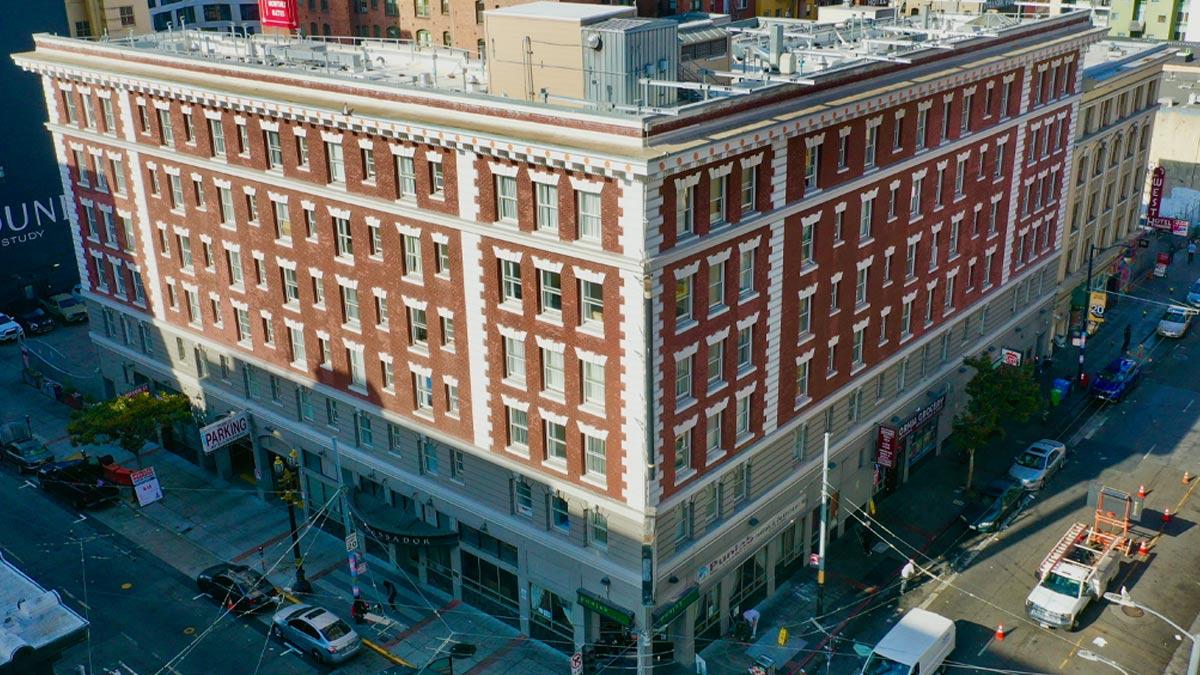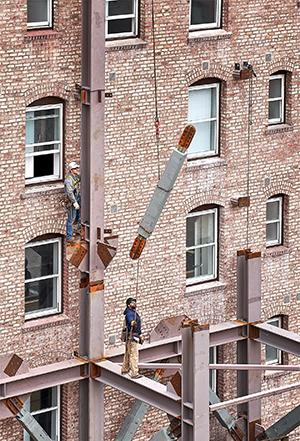Bank Investing in San Francisco’s Tenderloin Community
The Ambassador Hotel houses 134 residents, serves as critical affordable housing
Originally published on U.S. Bank company blog
The historic Ambassador Hotel has played a role in San Francisco's history for 112 years, including serving as an informal hospice during the 1980s and 1990s AIDS crisis, and housing low-income individuals today.
Time along with wear and tear left the building in need of a comprehensive rehab, and San Francisco’s Tenderloin Neighborhood Development Corp., which acquired the Ambassador in 1999, is in the midst of a such a rehab project, which includes funding from U.S. Bancorp Impact Finance.
Impact Finance invested $67 million in Low-Income Housing Tax Credits (LIHTC) and provided a $71 million construction loan. It instituted a financial structure involving LIHTCS that included tax exempt and taxable construction financing.
“The Ambassador Hotel holds a rich and cherished history in the heart of San Francisco, particularly among the Tenderloin community,” said TNDC CEO Maurilio Leon. “During the 1980’s and 1990s, it served as a vital sanctuary for numerous AIDS patients, extending compassion and support to those who were without the means to care for themselves or connect with support networks. In the early 2000s, TNDC assumed the stewardship of this historic place, and today, in 2023, we take great pride in continuing its enduring legacy by preserving affordable housing for our community.”
Constructed in 1911 and on the National Register of Historic Places, the Ambassador Hotel is a six-story building with 134 single-room apartments that include full bathrooms and kitchenettes. The property houses very low-income individuals with an area median income between 30-60%.
Located on the corner of Eddy and Mason Streets, the Ambassador’s rehab included a mega structural upgrade featuring structural steel plus life safety upgrades, code upgrades and replacement of building systems.
“At a time when other financial partners hesitated to move forward with an investment due to the complexities, we leaned in,” said Lisa Gutierrez, director of business development, affordable housing, for Impact Finance. “We’ve specialized in complex developments like this for over 30 years. The coordination to get to the finish line was intense, from understanding the relocation plan of this vulnerable resident population to aligning with the many public funding sources and rental subsidies, all while managing the building rehabilitation needs of this historic building.”
In addition to this financing, since 2005, the U.S. Bank Foundation has provided $225,000 in grant and corporate contribution funding to TNDC.
The project is expected to be completed in 2024, and Ambassador residents said they are excited about the changes.
“I really like the new modern features at the Ambassador – especially the additional cabinet space in my room,” said one resident.
“I enjoyed returning to my newly rehabbed unit. Everything is so new and works well,” said another.
“I especially like the outdoor furniture on the Ambassador’s courtyard patio,” another resident said. “I’m planning to do my schoolwork out there at one of the new tables.”
Over nearly 30 years, Impact Finance has provided $1.25 billion in debt and almost $800 million in equity within San Francisco’s larger five-county metropolitan statistical area.
Gutierrez said the bank’s motivation to be involved in the Ambassador project is the investment's high impact.
“We’re investors with heart," she said, "and our primary goal is to create lasting change in our communities.”



